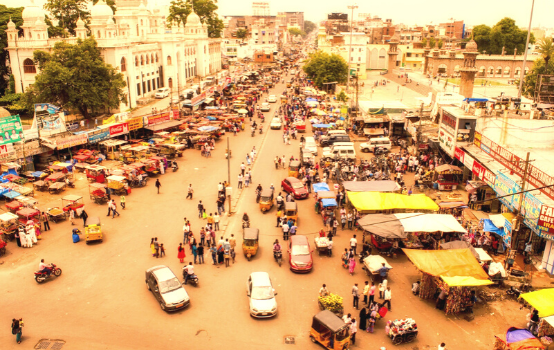
We love to spend our money on products and services that enrich our families’ lives. We see the attractive shelves, but we often don’t see what it takes to bring those products to their points of purchase—with the deeply discounted prices we love.
Well, unbeknownst to us, an unforeseen and unpredictable force arrived in the form of a global pandemic and all too quickly our purchasing power did not seem so powerful—or even important. In a matter of weeks, we came to terms with the fact we may be forced to shift, reexamine, and re-imagine the ways in which we produce, transport, and deliver all of the products we consider so dear to our existence; that the mechanisms we use to make global sourcing decisions may have ignored the disruption risk on the very businesses they were designed to serve. Rather than approaching global sourcing with an eye of achieving the lowest possible cost—and potentially pay a heavier price later—now, we are forced to examine our methodologies under the lens of “total value contribution.”
What Does This Have to do With India?
India has long remained an enigma for most of the developed world. It is the world’s fastest growing economy (at least until recently), the world’s largest democracy, and the world’s second largest English-speaking nation. On paper, India comes across as a natural trading partner for the western world—a young and dynamic country (65 percent of its population is below the age of 35) with limited geopolitical ambitions but a rich and deep heritage of science, education, innovation, and progressiveness. India is home to 55 percent of the world’s business processes and is the world’s largest technology producer. Now, with the world searching for a safe alternative destination to land some of its dispelled and threatened manufacturing, the only country with the space, human capital, and scale to become a viable home for value-based supply chains, is India.
India as an Attractive Trade Partner
Over the past six years, India has made great strides towards making itself attractive to foreign trade and investment. Efforts such as, implementing Goods and Services Tax (GST), which combined over 30 different indirect taxes under one umbrella and provided financial inclusion of the unorganized sectors. It also brought digitization into the hands of the farthest flung villages, strengthened infrastructure, curbed corruption, reduced red tape, ensured that every Indian has a sanitary toilet to use, put 600 million smartphones in the hands of its youngest and brightest, brought 100 million people out of extreme poverty, and developed successful programs such as Skills India to project India as the country to do business with. However, the challenges of democracy and politics have kept India from truly unleashing its true potential.
As we emerge from this global pandemic, and as the world seeks to strengthen the fragility of its supply chains and reduce its over-dependence on a few countries, India has the power and potential to take on that burden. The Indian government has been lauded for its rapid and swift response to COVID-19, which has resulted in fewer than 800 deaths in a nation of 1.3 billion people, some of which live 10 to a room.
India has recently announced measures to make itself more competitive and welcoming to foreign investors looking to establish manufacturing or purchase material. No matter how challenging it may seem to overcome India’s bureaucratic and somewhat cumbersome ways of conducting business, India has been and will continue to be a country where 750 million come out to vote every five years and exercise their power of free speech, a country with a powerful media, and a robust judiciary that makes the suppression of dissention virtually impossible – values we deeply cherish in the western world. And while some of these factors impede rapid development, India will emerge as the largest and safest beneficiary of a new world order, where sourcing managers will be evaluated by total value contribution—to profitability, to society, to equality, to empathy, and most importantly to the greater good of humanity.
We know now that no matter how many aspects of our business we control, we are only a virus away from recognizing the societal imbalance created by our indulgences and dependencies. India is one country that has the power to plug the gaps and lead us towards a safer, more balanced world order.

